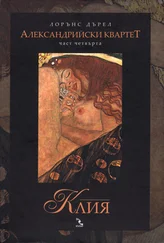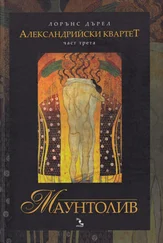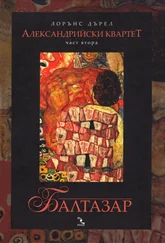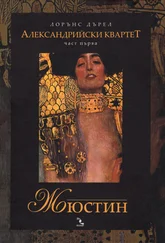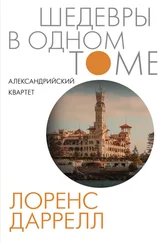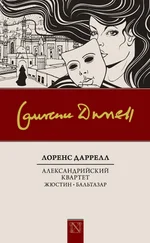Лоренс Даррелл - Prospero's Cell
Здесь есть возможность читать онлайн «Лоренс Даррелл - Prospero's Cell» весь текст электронной книги совершенно бесплатно (целиком полную версию без сокращений). В некоторых случаях можно слушать аудио, скачать через торрент в формате fb2 и присутствует краткое содержание. Жанр: Проза, на английском языке. Описание произведения, (предисловие) а так же отзывы посетителей доступны на портале библиотеки ЛибКат.
- Название:Prospero's Cell
- Автор:
- Жанр:
- Год:неизвестен
- ISBN:нет данных
- Рейтинг книги:4 / 5. Голосов: 2
-
Избранное:Добавить в избранное
- Отзывы:
-
Ваша оценка:
- 80
- 1
- 2
- 3
- 4
- 5
Prospero's Cell: краткое содержание, описание и аннотация
Предлагаем к чтению аннотацию, описание, краткое содержание или предисловие (зависит от того, что написал сам автор книги «Prospero's Cell»). Если вы не нашли необходимую информацию о книге — напишите в комментариях, мы постараемся отыскать её.
Prospero's Cell — читать онлайн бесплатно полную книгу (весь текст) целиком
Ниже представлен текст книги, разбитый по страницам. Система сохранения места последней прочитанной страницы, позволяет с удобством читать онлайн бесплатно книгу «Prospero's Cell», без необходимости каждый раз заново искать на чём Вы остановились. Поставьте закладку, и сможете в любой момент перейти на страницу, на которой закончили чтение.
Интервал:
Закладка:
'The great god Pan', says the Count, reverting suddenly to his original theme, which has been running as an undercurrent in his thoughts all this time, 'was first announced as dead off Paxo, some miles south of us. This island must have been among the first to get the news. We have no records to tell us how the islanders received it. Yet in our modern pantheon we have a creature whose resemblance to Pan is not, I think, fortuitous. He is, as you know, called the kallikanzaros. He is the house-sprite, a little clovenhooved satyr with pointed ears, who is responsible for turning milk sour, for leaving doors unlocked, and for causing mischief of every kind. He is sometimes placated by a saucer of milk left upon a window-sill, or a kolouri — one of those quoit-shaped peasant cakes. He also is dying out. But there is one story about him which you, my dear Zarian, will enjoy recording. It is said that on the ten days preceding Good Friday, all the kallikanzaroi in the Underworld are engaged simultaneously upon the task of sawing through the giant plane-tree whose trunk is supposed to hold up the world. Every year they almost succeed, except that the cry “Christ has arisen” saves us all, by restoring the tree and driving them up in a chattering throng into the real world — if I may call our world that. Perhaps you will be able to find classical origins for the story. I give it to you for what it is worth.'
Bats are now beginning their short strutting flights against the sky. In the east the colour is washing out of the world, leaving room for the great copper-coloured moon which will rise soon over Epirus. It is the magic hour between two unrealized states of being — the day-world expiring in its last hot tones of amber and lemon, and the night-world gathering with its ink-blue shadows and silver moonlight.
'Watch for her', says the Count, 'behind that mountain there.' The air tastes faintly of damp. 'She will be rising in a few moments.'
'I am thinking', says Zarian, 'how nothing is ever solved finally. In every age, from every angle, we are facing the same set of natural phenomena, moonlight, death, religion, laughter, fear. We make idolatrous attempts to enclose them in a conceptual frame. And all the time they change under our very noses.'
'To admit that,' says the Count oracularly, 'is to admit happiness — or peace of mind, if you like. Never to imagine that any of these generalizations we make about gods or men is valid, but to cherish them because they carry in them the fallibility of our own minds. You doctor, are scandalized when I suggest that The Tempest might be as good a guide to Corcyra as the official one. It is because the state of being which is recorded in the character of Prospero is something which the spiritually rich or the sufficiently unhappy can draw for themselves out of this clement landscape.'
'All this is metaphysics,' says Zarian a trifle unhappily.
'All speculation that goes at all deep becomes metaphysics by its very nature; we knock up against the invisible wall which bounds the prison of our knowledge. It is only when a man has been round that wall on his hands and knees, when he is certain that there is no way out, that he is driven upon himself for a solution.'
'Then for you, Count,' says Theodore, 'the hard and fast structure of the sciences yields nothing more than a set of comparative myths, some with and some without charm?'
'I would like to pose the problem from another angle. There is a morphology of forms in which our conceptual apparatus works, and there is a censor — which is our conditioned attitude. He is the person whom I would reject, because he prevents me choosing and arranging knowledge according to my sensibility. I will give you an example. I was once asked to write a short history of sixthcentury Greek sculpture. My publisher refused the work because in it I had pointed out that sixth-century sculpture reaches its peak in Maillol, an artist of whom the man had not then heard. He informed me that I could not treat history in this manner. He informed me of the fact in the exact tone of voice used by my own censor when I first happened upon a Maillol statue, standing weighed down by its connections with the Mediterranean earth. Yet an instant's observation will show one that Maillol does not belong to us in space and time, but to them; I mean to the Greeks of the sixth century.'
At this point, according to time-honoured custom, we chant in unison: 'And if you don't believe me there is a Maillol in the garden to prove it to you', at which the Count smiles his indulgent smile and nods twice. 'There is indeed,' he says.
The first bronze cutting-edge of the moon shows behind the mountain, travelling fast. 'Ah, there she is,' says Zarian.
'And here we are,' says the Count, unwilling to relinquish his subject, 'each of us collecting and arranging our common knowledge according to the form dictated to him by his temperament. In all cases it will not be the whole picture, though it will be the whole picture for you. You, Doctor, will proceed under some title like The Natural History, Geology, Botany and Comparative Ethnology of the Island of Corfu. You will be published by a learned society in Vienna. Your work will contain no mention of the first edition of Petrarch in the Library, or of the beautiful mother of Gorgons in the Museum. As for you, Zarian, your articles when they are collected in a book will present a ferocious and lopsided account of an enchanted island which has seduced every historical figure of note from Nero to Napoleon. You will omit the fact that communications are bad and that all Greeks are liars, and that the fleas during the summer are intolerable. It will not be a true picture — but what a picture it will be. Hordes of earnest Armenians from New York will settle here to quote your poetry and prose to each other, and I will be able to charge two drachmae for sitting in the chair which you now occupy and which will certainly outlive you.'
'And I?' I say. 'What sort of picture will I present of Prospero's Island?'
'It is difficult to say,' says the Count. 'A portrait inexact in detail, containing bright splinters of landscape, written out roughly, as if to get rid of something which was troubling the optic nerves. You are the kind of person who would go away and be frightened to return in case you were disappointed; but you would send others and question them eagerly about it. You are to be forgiven really, because you have had the best of your youth in the island. And it is only very much later that one grows the courage to return. I noticed that you did not drink of Kardaki's well the other day. I particularly noticed.'
'I do not like being bound by charms,' I say.
At this point Theodore, who has been listening with some impatience to this dissertation upon character, suggests a stroll, and soon we are walking down the avenue of cypresses together, smelling the strong tobacco from the Count's pipe.
'Ah no, Doctor,' says the old man, as if continuing aloud an argument which has been going on quietly in his mind, 'thought must be free. Let us dispense with the formalist whose only idea is to eliminate the dissonant, the discrepant. Let us marry our ideas and not have them married for us by smaller people. Only in this way will our ideas produce children — for the children of ideas are actions. Dear me,' he adds, 'I am hardly in a position to moralize. I live here quietly without children, on money which my grandfather earned. It would be useless my justifying myself to an economist by explaining that I am exercising my sensibility through loving greatly and suffering greatly in all this quietness. Don't you think?'
Insensibly his footsteps have lead us across the green unkept lawns to where the nymph stands in her rotunda. Her loins fall away in their heavy inevitable lines to her shapely feet. The torso is heavy with its weight of lungs and bone. The breasts ride superbly, held by the invisible thongs of the pectorals.
Читать дальшеИнтервал:
Закладка:
Похожие книги на «Prospero's Cell»
Представляем Вашему вниманию похожие книги на «Prospero's Cell» списком для выбора. Мы отобрали схожую по названию и смыслу литературу в надежде предоставить читателям больше вариантов отыскать новые, интересные, ещё непрочитанные произведения.
Обсуждение, отзывы о книге «Prospero's Cell» и просто собственные мнения читателей. Оставьте ваши комментарии, напишите, что Вы думаете о произведении, его смысле или главных героях. Укажите что конкретно понравилось, а что нет, и почему Вы так считаете.


